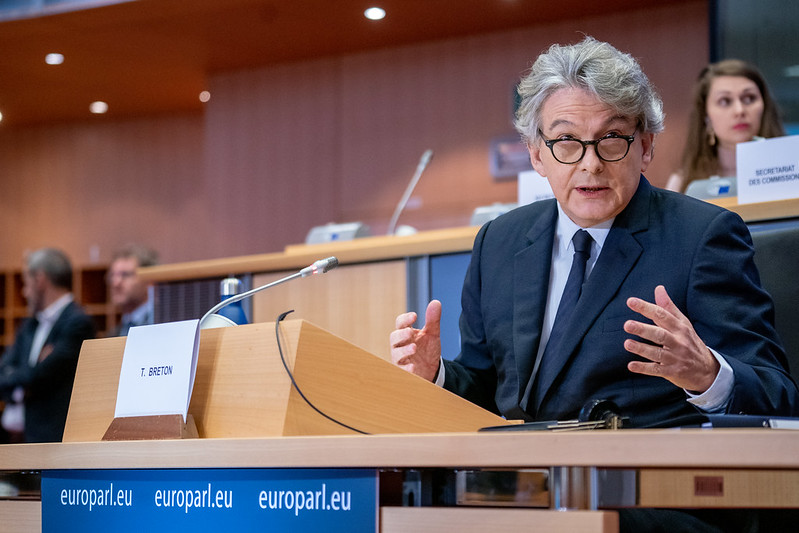
European Commissioner Thierry Breton urged European financiers this week to provide more funding to suppliers of minerals needed for the energy transition, as the European Union prepares its Green Deal industrial plan.
The EU is due to unveil its Critical Raw Materials Act on March 8 to secure the bloc’s supply of critical raw materials including lithium, cobalt, nickel, manganese and graphite needed for electric vehicles.
Breton highlighted two major issues. The first is over-reliance on countries such as major producer China for materials such as magnesium used in electronics, cars and machinery. The second is the expected “colossal” increase in demand.
EU dependency on metal imports and security of supply has been reinforced by energy-intensive industries looking to shift production out of the bloc due to soaring power costs after Russia invaded Ukraine.
Russia has historically been a major supplier of aluminium, nickel, copper, cobalt and palladium to Europe.
“I want you to invest in operations in the critical raw materials value chain,” Breton told a roundtable of European banks including Société Générale, Deutsche Bank and Santander Group among others, according to a transcript of his remarks seen by Reuters on Wednesday.
“Sometimes you faced challenges: here in Europe, because of local opposition, long procedures or lack of economic case; or in the rest of the world, where you may be accused of supporting projects with low environmental and social standards,” he added, addressing the room at Brussels’ Berlaymont hotel on Monday.
Having to coordinate legislation across 27 members, the bloc is lagging other Western countries, such as the United States and Canada, which have already introduced bills to secure clean energy and energy transition materials.
The head of the European Commission, Ursula von der Leyen, said last week the EU was making available a European Sovereignty Fund to keep firms from moving to the United States.
The EU has hopes of folding Ukraine, as well as other countries, into its battery sector build-out, Breton said.
“Of course, we can’t only invest in Europe. That is why we have established strategic partnerships on critical raw materials with Canada, Ukraine, Namibia and Kazakhstan. And advancing in discussions with other countries.”
(By Clara Denina and Pratima Desai; Editing by Mark Potter)
Comments